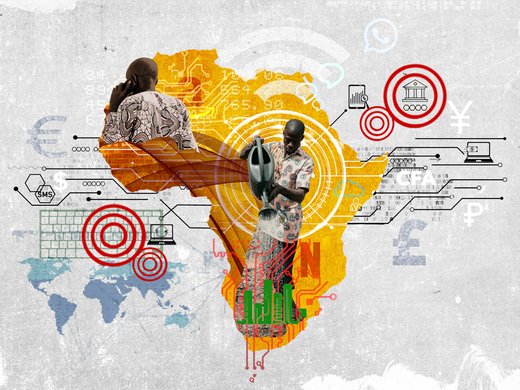Nine coups in the last three years have seen Africa make headlines for all the wrong reasons. But this latest bout of political instability is overshadowing the continent’s vast potential. Finding solutions to collective global issues like the climate crisis, development finance and reforming multilateral institutions must involve Africa’s 54 nations and 1.4 billion people.
The African Union’s recent acceptance into the Group of Twenty as a permanent member is a positive step. However, for advanced liberal democracies to continue relegating African countries to afterthought status in a fragmenting economic and geopolitical landscape risks sabotaging efforts to uphold a rules-based international order.
This is important for Ottawa to understand. Analysis by the Bank of Canada suggests that more than 60 percent of Canada’s GDP is linked to trade. Moreover, Canadian incomes are between 15 and 40 percent higher than they otherwise would be given the open-structured nature of international commerce because of globalization.
Yet the Liberal government’s Indo-Pacific Strategy calls for pivoting Canadian supply chains away from China for national security reasons. A tentative free trade deal between Canada and India also seems to have evaporated, given the deepening political rift between Ottawa and New Delhi over the June slaying of a Sikh separatist leader on Canadian soil, allegedly by Indian government agents.
Better engagement with Africa would enable Canada to offset these trade losses. Indeed, members of the continent’s diplomatic corps and diaspora communities in Canada have been calling for this for years — and not just for an expansion of mining operations and other extractive industries.
After being criticized earlier this year for downgrading its new Africa policy to a simplified framework approach, the Liberal government is now seeking input on a proposed Canada-Africa Economic Cooperation Strategy. Its pillars include support for the African Continental Free Trade Area (AfCFTA) — the world’s largest free trade zone — as well as facilitating investments in infrastructure and expanding partnerships in research and innovation.
The partnerships in innovation aspect is key. Despite being the world’s least developed region, Africa has become a hotbed of technological innovation. According to the latest Venture Capital in Africa report, while the volume of venture capital deals declined globally by three percent last year, in Africa they grew by 21 percent, attracting US$5.2 billion in funding from more than 1,000 unique investors.
Research by market analysis firm Briter Bridges indicates 75 percent of this investment flowed to regional heavyweights Egypt, Kenya, Nigeria and South Africa. And while Africa’s start-up scene continues to be dominated by financial tech companies, 2022 saw clean tech, logistics and mobility all drawing higher levels of investment too.
This is occurring just as increased internet connectivity is about to turbocharge Africa’s economic growth. The United Nations estimates that around three-quarters of the continent’s population will have internet access by 2030 compared to 20 percent in 2020. A joint report from Google and the International Finance Corporation — a part of the World Bank Group — says the resulting network effect could generate 44 million new jobs. Africa’s internet economy itself might be worth $180 billion by 2025, accelerating both national development and the economic synergies sought through AfCTFA.
All told, by investing in early-stage African tech, building tech in Canada suitable for emerging market opportunities on the continent, and supporting its talent within a coherent economic strategy, Canada can enhance economic diplomacy in Africa while harnessing its dynamism toward Canada’s prosperity.
To start, Ottawa would be wise to emulate the Biden administration’s new advisory council on engaging African diaspora groups. This will help establish routine dialogue and build trusting relationships that can inform Canadian actions on a national, regional and continent-wide level within Africa.
Meanwhile, input from the diaspora will help improve the design of support programs to assist small and medium-sized enterprises in Canada that trade with counterparts in Africa. Ottawa’s Trade Commissioner Service should also aim to scale up its presence across the continent and develop collaborative private sector partnerships.
There is an urgent need to shift the narrative around Africa to portray the opportunities it offers the rest of the world — home to 18 percent of the global population, its share of global trade is just three percent.
As Africa’s technology and innovation ecosystems mature, its countries and companies will be looking for suitable partners that respect the principle of self-determination. Canada has an opportunity to be the partner the region needs.
This article first appeared in The Hill Times.



